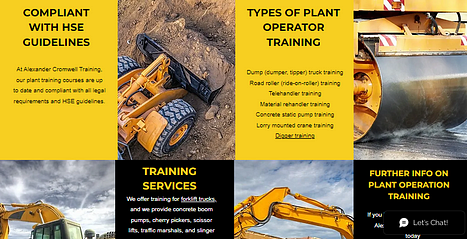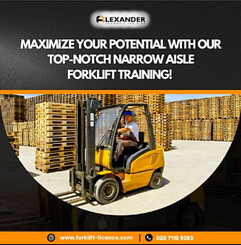Mastering Precision and Safety: Counterbalance Forklift Training

In the world of material handling and warehouse operations, the counterbalance forklift stands as a versatile workhorse. Its ability to maneuver heavy loads with precision makes it an indispensable tool in various industries. However, operating this powerful machine requires skill and expertise.
This is where counterbalance forklift training from Forklift Licence comes into play. In this article, we’ll explore the significance of counterbalance forklift training and address some frequently asked questions to help you understand its importance.

The Importance of Counterbalance Forklift Training
The counterbalance forklift is characterized by its weight distribution, with a weighty counterbalance at the rear of the vehicle. This design allows it to carry and transport heavy loads with ease while maintaining stability. However, due to its power and capacity, operating a counterbalance forklift demands specialized training.

Here’s why counterbalance forklift training is crucial:
1. Safety: Safety is paramount in any workplace. Training ensures that operators are well-versed in safety protocols, reducing the risk of accidents and injuries.
2. Efficiency: Proper training equips operators with the skills to handle materials efficiently and swiftly, enhancing workplace productivity.
3. Compliance: Many jurisdictions and organizations mandate that forklift operators hold valid certifications. Training ensures compliance with legal and regulatory requirements.
4. Equipment Longevity: Correct operation and maintenance practices learned during training extend the life of forklifts, reducing repair and replacement costs.

FAQs About Counterbalance Forklift Training
Q1: Who should undergo counterbalance forklift training?
A1: Anyone who operates or intends to operate a counterbalance forklift, from novices to experienced operators, should undergo training to ensure safety and proficiency.
Q2: How long does a typical counterbalance forklift training course take?
A2: The duration varies depending on the level of experience and the specific course. Basic courses can take as little as one to two days, while comprehensive programs may span several days.
Q3: What topics are covered in counterbalance forklift training?
A3: Training typically covers safety procedures, equipment operation, load handling, pre-use inspections, and relevant regulations.
Q4: Is there a certification involved in counterbalance forklift training?
A4: Yes, successful completion of the training program typically results in a certification, which is often a requirement for operating a counterbalance forklift course legally.
Q5: Is counterbalance forklift training only for novices, or can experienced operators benefit from it as well?
A5: Experienced operators can also benefit from training, as it helps reinforce safe practices and introduces them to the latest industry standards and best practices.
Forklift Licence’s counterbalance forklift training courses are designed to empower individuals with the knowledge and skills needed to operate these machines safely and effectively. With expert instructors and hands-on experience, our courses prepare you to handle the challenges of material handling with confidence.
If you’re looking to enhance your career prospects, improve workplace safety, and boost efficiency, consider enrolling in our counterbalance forklift training program. It’s not just about certification; it’s about mastering the art of precision and safety in material handling.
Comments
Post a Comment